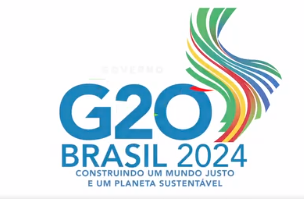

I remotely attended the first meeting organised by the C20 Brasil (Civil20 Brasil), one of the engagement groups of G20.
I noticed the excitement and optimism for using the G20 Brasil process as an opportunity to create everlasting change for civil society engagement in the country around pressing social and economic issues, hoping to connect different actors whose work is intertwined.
On that occasion, the different G20 Brasil engagement groups also presented the topics and principles that will guide their work during the country’s presidency: T20 Brasil Lead institutions: IPEA, CEBRI and FUNAG
Topics: (1) combating inequality, hunger, and poverty; (2) sustainable climate action and fair and inclusive energy transitions; (3) reform of the international financial structure; (4) trade and investment for sustainable and inclusive growth; (5) digital transformation; (6) strengthening of multilateralism and global governance.
C20 Brasil Lead institution: the Brazilian Association of NGOs (Abong)
Their process will be guided by three main concerns around G20: (1) civil society organizations are often excluded from economic discussions; (2) previous host countries were more closed to international participants; and (3) intersectionality has often been overlooked and next hosts (Brasil and South Africa, countries with the most prominent black populations) should address that.
L20 Brasil Lead institution: organized by the Unified Workers’ Central - CUT with assistance from OECD’s Trade Union Advisory Committee - TUAC and the International Trade Union Confederation
Topics: conversations will be through the lens of a “new social contract,” which encompasses decent work, sustainable development, and quality or full employment. Informal jobs and the gig economy are the primary concerns.
S20 Brasil Lead institution: the Brazilian Academy of Sciences
Topics: (1) social justice, inclusion, combating poverty and inequality; (2) artificial intelligence, ethics, privacy, and reliability; (3) bio-economy, promoting sustainable development in its economic, social, and environmental dimensions; (4) energy transition process, renewable energies, social and economic considerations; (5) health challenges: quality, equity, and access. Cross-cutting themes: food security, climate change, gender, and race.
W20 Brasil Lead institution: with no lead organization, it is led by a group of delegates composed of women from different sectors and institutions.
Topics: women entrepreneurs, women in STEM, and the care economy (both paid and unpaid).